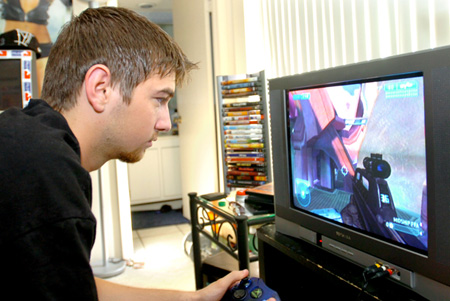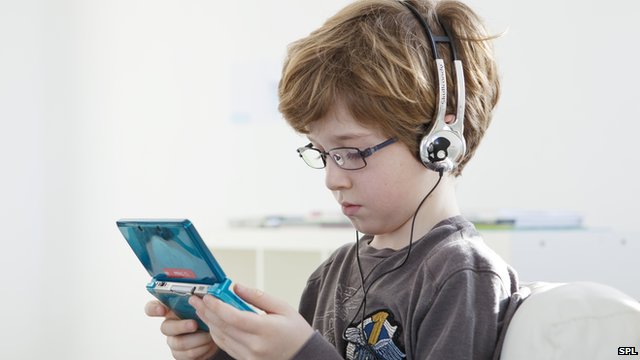An exercise component of the popular Nintendo Wii video game may help multiple sclerosis patients improve their balance by rewiring their brains, a new study suggests.
No medications exist to preserve balance in MS patients, and some drugs make balance worse, said study lead author Dr. Luca Prosperini, a neurologist at Sapienza University in Rome, Italy.
It appears that patients who use the Wii Balance Board five days a week — moving to snowboarding or dance games, for example — may help reduce their risk of falls and boost certain brain connections, possibly because they’re coordinating their movements with a figure on a screen, Prosperini said.
There are caveats to the research, however. The study was small, and there’s a risk that patients could hurt themselves by falling, although they can play seated rather than stand on the balance board.
“Patients with MS should be encouraged to start using this system only under supervision,” Prosperini said. “Once well-trained, they may use it at home.”
Multiple sclerosis is a nerve disorder that affects how the brain communicates with the body. “Balance problems are quite common and arise due to the effects of MS on a number of functions that are important for balance,” said Nicholas LaRocca, vice president for health care delivery and policy research with the National Multiple Sclerosis Society. Among other things, MS can disrupt vision, coordination and the body’s balancing mechanism, he said.
Patients turn to a variety of strategies to support balance, he said. Canes and orthotic devices (shoe inserts) help some people, and rehabilitation can build strength and coordination. Some patients try electrical muscle stimulation to maintain or regain control of their muscles, he said.
Prosperini was inspired to study a video game treatment for MS when he saw patients in rehabilitation using a balance-boosting system that reminded him of an old Atari video game. Then a commercial about the Wii Balance Board caught his attention. The balance board, shaped a bit like a weight scale, detects a person’s movements and allows them to be translated into action on a TV screen.
Prosperini tried to get a grant from Nintendo to support research. The company wasn’t interested, he said, but he obtained funding from the Italian MS Society.
His previous research has supported the idea that patients regain balance when they use the Wii Balance Board. The new study aimed to understand what’s happening in their brains.
In the new study, published online Aug. 26 in Radiology, 27 MS patients were split into two groups. One group spent three months doing nothing special while the other group played with the Wii Balance Board for 30 to 40 minutes daily, five days a week. Then the groups reversed roles: Those who had done nothing special used the balance board for three months, while the others stopped using it.
Another 15 healthy people tried the system, too.
All participants had specialized MRI scans to detect any physiological changes in the brain.
The researchers found that patients regained some balance, presumably by using the board, and their brains actually changed. Using the video game was tied to improvements in the protective sheath around nerves, leading to better conduction of impulses between the body and brain, Prosperini said.
It’s not clear if other kinds of training might also help MS patients regain balance, he said. But video games like those that use the balance board might have similar benefits because they require patients to mimic movements that they see on screen, potentially providing an extra brain boost.
LaRocca, of the MS Society, said the study is valid but has limitations. For one, it’s difficult to interpret what the brain changes mean, he said. Also, he added, the research suggests that the improvements in balance aren’t permanent, requiring patients to keep at it to make the benefits last.
“Training needs to be ongoing, just like any other form of exercise,” LaRocca said.
While the study found an association between the video-game balance board and balance-enhancing brain changes, it did not establish a cause-and-effect relationship. Prosperini said more research is needed, especially since the study was so small.
“There is increasing evidence of the clinical benefit of playing with the balance board, and more in general with highly interactive video games,” he said. But researchers don’t know enough about why the patients are getting better, he added.
Source: webmd



